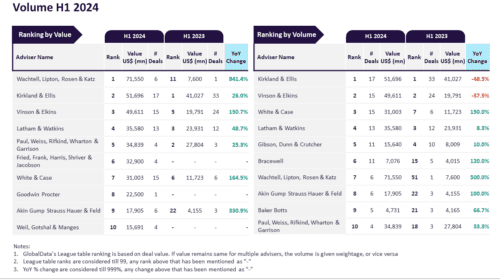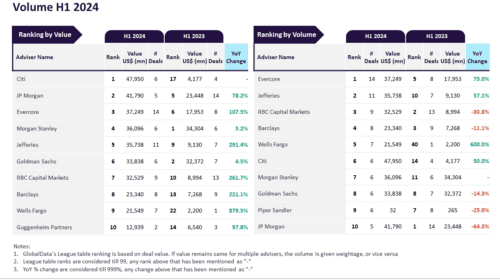Austin, Texas – Today, the Railroad Commission of Texas convened for its monthly commissioners’ conference to discuss pending business and regulatory matters, as well as receive an update from the Blue Ribbon Task Force for Oil Economic Recovery. This task force was formed last month by the commission’s chairman, Wayne Christian, to evaluate solutions that will assist oil and gas operators and save jobs as the industry endures historic and unprecedented challenges. Ed Longanecker, president of the Texas Independent Producers & Royalty Owners Association (TIPRO), provided testimony during Tuesday’s public hearing on behalf of the task force and its list of recommendations for consideration by the Railroad Commission. On Tuesday morning, leaders of the Railroad Commission also voted against a proposal to impose limits on oil production in Texas. The following statement can be attributed to Mr. Longanecker:
“On behalf of the Blue Ribbon Task Force for Oil Economic Recovery, I was pleased this morning to update the commissioners of our collective recommendations to keep oilfield workers employed and help Texas operators to survive these exceptionally difficult circumstances.
The recommendations developed by the task force are designed to be broad, yet comprehensive, and include fee relief, relaxed reporting requirements, additional deadline extensions and other mechanisms to expand storage capacity in Texas. The focus of the group’s suggestions is above all-else to provide small producers with regulatory relief at this time, though when possible, the task force encourages relief be granted to all operators, regardless of size, as this crisis does not discriminate and is negatively impacting every sector of the industry.
Since the Blue Ribbon Task Force for Oil Economic Recovery was formed, a wide range of options have been vigorously explored by group members to understand how to assist the industry during this historic downturn. This includes items not just under the jurisdiction of the Railroad Commission, but also recommendations that should be pursued by other state agencies to help energy producers in Texas, and even legislative action from state lawmakers that will enable operators to return to robust energy production as quickly as possible. The task force recognizes the legislature will not convene again until January, but unfortunately this market disruption is so severe that the recovery process will not be resolved before then and additional actions to support this industry will undoubtedly be needed leading into 2021.
Further, as part of its set of recommendations, the task force has also evaluated several federal policy issues and priorities that could help address present challenges for oil and gas companies, including options to extend fiscal and monetary relief. The task force also has suggested ways to support Texas oil and natural gas producers seeking to gain access to the Strategic Petroleum Reserve, as one of several ways to address storage capacity constraints.
As a task force and an industry, we are grateful for the swift leadership and proactive efforts already taken thus far by the commission. This includes the thorough examination by all three Railroad commissioners in recent weeks on the motion to establish production limits in the state as a result of market conditions. TIPRO commends the commissioners for ultimately avoiding a government mandate to curtail oil production in Texas, which would have further exacerbated the challenges facing oil and natural gas producers.
Based on significant reductions in capital expenditures and the projected organic decline in domestic production this year, it is evident that the market will continue to work faster and more efficiently than any government intervention ever could. The economic miracle of Texas was built on free market policies, and those principles must guide us as we navigate our way through these extremely challenging circumstances.
Instead of capping oil output through prorating production, given the extreme market conditions currently facing producers, we are thankful that the Railroad Commissioners are open to taking quick action on the other solutions brought forward by the task force that will offer additional and immediate relief to the oil and gas industry.
Following my remarks today, the commissioners considered other options to support operators and provide regulatory certainty. Chairman Christian presented two motions based on suggestions from the task force and commission staff. The orders include:
(1) Waive fees and surcharges associated with the following filings for the remainder of the calendar year: P-17 form; W-14 form; H-1 form; and W-3C form.
(2) Exception to Statewide Rule 95 to allow storage of crude oil in formations that are not salt formations. Parties would still be required to show the formation is confirmed to prevent the escape of crude oil. No rules regarding health or safety will be suspended in relation to the order, and the order will expire in one year. All stored oil must be removed within a five year timeframe, according to the chairman’s order.
Separately, Commissioner Craddick brought forth her own motions to extend help for operators during this period of crisis, including waivers related to:
(1) Statewide Rule 8(d)(4)(H) – extension on deadline to dewater, backfill and compact authorized pits. The extension will expire one year from today, unless terminated or otherwise extended.
(2) Statewide Rule 13(d) – extension on 180-day limitation on administrative appeals of alternative casing and tubing programs to allow administrative approvals to exceed 180 days. This exception will expire one year from today, unless terminated or otherwise extended.
(3) Statewide Rule 14(b)(2) – extension on a one-year deadline to plug wells now lasting for two years for wells reporting production in February 2020, and subsequently shut-in with no reported production from March 1, 2020, to March 1, 2021. This will not limit authority of the Railroad Commission to require plugging of a leaking well.
(4) Statewide Rule 107(b) – allows legal enforcement to exercise discretion in assessing penalties for violations occurring March 1, 2020, to March 1, 2021, that do not implicate health, safety or environmental concerns. This order expires one year from today, unless terminated or otherwise extended.
All motions reviewed during Tuesday’s hearing concerning waivers and regulatory relief passed unanimously and will immediately take effect.
Moving forward, TIPRO along with members of the Blue Ribbon Task Force pledge to continue to work collaboratively with each commissioner and commission staff to bring further relief to Texas oil and natural gas producers and mineral owners.”
To review the complete set of recommendations offered by the Blue Ribbon Task Force for Oil Economic Recovery, please visit: www.bit.ly/Task_Force_Recommendations_May2020.
To watch today’s full Railroad Commission conference, go to: http://www.adminmonitor.com/tx/rrc/open_meeting/20200505/. Please note that the discussion regarding the Task Force and its recommendations begins at the 18-minute mark.
About TIPRO
The Texas Independent Producers & Royalty Owners Association (TIPRO) is a trade association representing the interests of nearly 3,000 independent oil and natural gas producers and royalty owners throughout Texas. As one of the nation’s largest statewide associations representing both independent producers and royalty owners, members include small businesses, the largest, publicly-traded independent producers, and mineral owners, estates, and trusts.
Oil and gas operations are commonly found in remote locations far from company headquarters. Now, it's possible to monitor pump operations, collate and analyze seismic data, and track employees around the world from almost anywhere. Whether employees are in the office or in the field, the internet and related applications enable a greater multidirectional flow of information – and control – than ever before.











